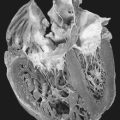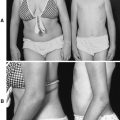58. Mastocytosis
Definition
Mastocytosis is a clonal disorder in which mast cells and the precursor cells accumulate in different tissues, such as bone marrow, skin, gastrointestinal tract, liver, and spleen.
Classifications of Mastocytosis
| Category IA | Indolent disease with skin involvement |
| Category IB | Systemic involvement with or without skin involvement |
| Category II | A hematopoietic disorder is a part of the disease |
| Category IIA | Dysmyelopoietic disorder associated with mastocytosis |
| Category IIB | Accompanied by myeloproliferative disease |
| Category IIC | Associated with nonlymphocytic leukemia |
| Category IID | Associated with malignant lymphoma |
| Category IIE | Associated with neutropenia |
| Category III | Mast cell leukemia becomes a part of the disease |
| Category IV | Associated with lymphadenopathic mastocytosis with eosinophilia (also known as aggressive mastocytosis) |
Incidence
The incidence of mastocytosis is extremely rare. The specific frequency of occurrence has not been documented.
Etiology
Mutations of the c- kit proto-oncogene have been implicated as the cause of some forms of mastocytosis. The systemic form, a codon-816 c- kit mutation, is commonly found.
Signs and Symptoms
• Abdominal pain
• Anemia
• Ascites
• Basophilia
• Budd-Chiari syndrome (see p. 59)
• Dilated small bowel
• Diverticulitis
• Eosinophilia
• Esophageal stricture
• Esophageal varices
• Esophagitis
• Hepatomegaly
• Leukocytosis
• Leukopenia
• Lymphadenopathy
• Lymphopenia
• Malabsorption
• Monocytosis
• Mucosal lesions
• Multiple polyposis
• Peptic ulcer disease
• Portal hypertension
• Sclerosing cholangitis
• Splenomegaly
• Thrombocytopenia
• Thrombocytosis
Medical Management
Medical interventions for the patient with mastocytosis are aimed mostly at symptomatic relief and are not curative. The primary goal is to institute measures directed toward decreasing the activation of mast cells. Mast cells are instrumental/integral participants in the allergic response. Mast cell activation causes release of substances stored within the cell (i.e., histamine, heparin, prostaglandin D 2), resulting in signs and symptoms of a severe allergic response, even anaphylaxis. Epinephrine is the treatment of choice for the appearance of a severe allergic or anaphylactic reaction. H 1– and H 2-blocking medications may also be useful in controlling anaphylactic symptoms.
Peptic ulcer disease associated with mastocytosis may be treated by administration of H 2-blocking medications to reduce the gastric hypersecretion. Proton pump inhibitors are also an effective treatment in peptic ulcer disease.
Pruritus is often treated with psoralen ultraviolet A, which has been reported to provide transient relief, but it may also cause some patients’ skin lesions to fade. Diarrhea associated with mastocytosis may be treated with administration of either anticholinergics or disodium cromolyn. Various chemotherapeutic medications are used to treat Categories II to IV of systemic mastocytosis. The results have not yet been successful. The two medications most often used are interferon alfa and 2-chlorodeoxyadenosine.
Allogenic bone marrow transplantation is being studied in clinical trials by the National Institutes of Health to treat the bone marrow infiltration, but this intervention is considered experimental.
Diagnostic surgical interventions such as laparoscopy, bone marrow biopsy, and endoscopy may exacerbate the condition. These interventions may activate the mast cells and precipitate an anaphylactic response.
Hematologic Manifestations Associated with Mastocytosis
• Castleman disease
• Hairy-cell leukemia
• Hypereosinophilic syndrome
• Monoclonal gammopathy
• Non-Hodgkin’s lymphoma
• Polycythemia vera
• Primary thrombocytopenia
Complications
• Anaphylaxis
• Death
• Hepatomegaly
• Lymphadenopathy
• Malabsorption
• Pathologic fractures
• Prolonged clotting times
• Splenomegaly
Anesthesia Implications
Preoperative laboratory data should be extensive and include liver enzymes, complete blood count, metabolic panel as well as prothrombin, partial thromboplastin, and bleeding times. Liver involvement can alter or delay the metabolism and elimination of most anesthesia-related medications. Derangements in PT/PTT and bleeding times, along with low platelet counts, must be addressed before initiating the proposed surgery. Treatments include platelet transfusion(s), vitamin K administration, and infusion of fresh frozen plasma.
The patient’s fluid and electrolyte status should be assessed before initiating any form of surgery and anesthesia. These parameters are particularly important for the patient with significant involvement of the gastrointestinal system. Proliferation of mast cells in the GI tract can result in a malabsorption syndrome. The malabsorption affects both fluid and electrolyte concentrations. In addition, malabsorption interferes with appropriate protein synthesis, which can have far-reaching effects on the actions of many anesthesia-related drugs and alter the production of clotting factors. Inadequate serum proteins result in greater bioavailability of protein-bound medications. Low serum proteins also contribute to loss of free water intravascularly, leading to dehydration.
Bony infiltration is also a prominent characteristic of mastocytosis. The lesions, which are very painful, may be osteoporotic or osteosclerotic. Bone pain indicates a higher potential for pathologic fractures. A great concern for the anesthetist is the positioning of the patient. Exaggerated gentleness is necessary to minimize the potential for fractures during the perioperative period.
The anesthetist must strive to avoid mast cell activation, which results in histamine release. Histamine release may occur as the result of physical, psychological, or chemical stimulation. Anxiolysis is important for the patient with mastocytosis. Adding an antihistamine to the premedication regimen may be beneficial. The anesthetist must also strictly avoid medications closely associated with the release of histamine, such as morphine, codeine, atropine, dextran, and sodium thiopental. Physical stimulation can also trigger histamine release. Therefore the anesthetist and OR staff should absolutely minimize rubbing the patient’s skin. In addition, the patient should not be allowed to experience extremes in ambient temperature, which will lead to shivering—a very potent physical stimulant. The patient must be kept warm throughout the surgical procedure, and any fluids should be warmed before they are administered.
The patient with mastocytosis is prone to anaphylactic reactions. As such, the anesthetist must be prepared at any instant to treat an anaphylactic reaction, or any sudden, unexplained episode of hypotension during the perioperative period. The anesthetist must have appropriate medications immediately at hand before induction of anesthesia, including epinephrine and other catecholamines, antihistamines, and/or bronchodilators.







